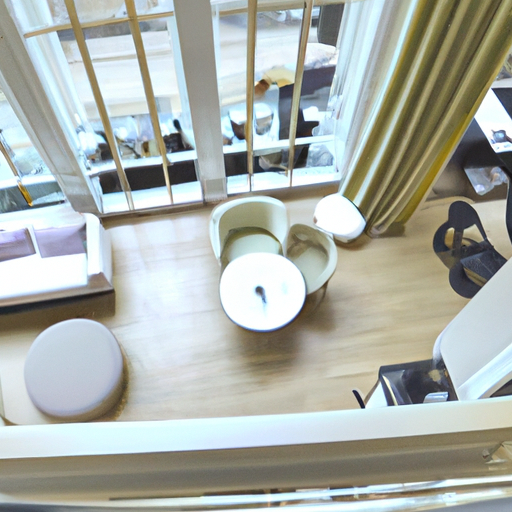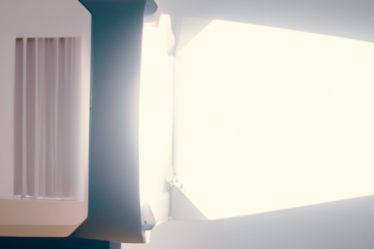
The Benefits of Integrating a Hotel PMS with Revenue Management Systems
Maximizing Profitability: Transforming Your Hotel PMS into a Strategic Asset
In today’s competitive hospitality industry, hoteliers are constantly seeking ways to increase profitability and gain a competitive edge. One effective strategy is to integrate a hotel property management system (PMS) with revenue management systems. This integration offers numerous benefits that can transform a hotel PMS into a strategic asset.
First and foremost, integrating a hotel PMS with revenue management systems allows for more accurate and efficient pricing decisions. Revenue management systems analyze market demand, competitor pricing, and historical data to determine the optimal price for each room. By integrating this data with the hotel PMS, hoteliers can easily adjust room rates based on real-time market conditions, maximizing revenue potential.
Furthermore, integrating a hotel PMS with revenue management systems enables dynamic pricing. Dynamic pricing is the practice of adjusting room rates in response to changes in demand, allowing hotels to optimize revenue during peak periods and attract guests during low-demand periods. With this integration, hoteliers can automate the process of adjusting room rates based on occupancy levels, ensuring that prices are always aligned with market demand.
Another benefit of integrating a hotel PMS with revenue management systems is the ability to streamline operations. By automating pricing decisions and room inventory management, hoteliers can reduce manual errors and save valuable time. This automation also allows for better inventory control, ensuring that rooms are always available for sale at the right price. Additionally, the integration enables seamless communication between the PMS and other systems, such as online travel agencies (OTAs), ensuring that room availability and rates are accurately reflected across all distribution channels.
Moreover, integrating a hotel PMS with revenue management systems provides valuable insights into guest behavior and preferences. By analyzing data from the PMS and revenue management systems, hoteliers can identify trends and patterns that can inform marketing and operational strategies. For example, if the data shows that guests are consistently booking rooms at a certain rate, hoteliers can adjust their pricing strategy accordingly. This data-driven approach allows for more targeted marketing campaigns and personalized guest experiences, ultimately leading to increased guest satisfaction and loyalty.
Additionally, integrating a hotel PMS with revenue management systems enhances forecasting capabilities. By analyzing historical data and market trends, revenue management systems can generate accurate demand forecasts, allowing hoteliers to make informed decisions about pricing, inventory, and marketing strategies. This forecasting capability is particularly valuable during periods of high demand or when planning for special events or promotions. With accurate forecasts, hoteliers can optimize revenue potential and avoid overbooking or underpricing rooms.
In conclusion, integrating a hotel PMS with revenue management systems offers numerous benefits that can transform a hotel PMS into a strategic asset. From accurate pricing decisions and dynamic pricing to streamlined operations and valuable insights, this integration empowers hoteliers to maximize profitability and gain a competitive edge in the hospitality industry. By harnessing the power of data and automation, hoteliers can optimize revenue potential, enhance guest experiences, and drive long-term success. So, if you’re looking to take your hotel to the next level, consider integrating your PMS with revenue management systems and unlock the full potential of your property.
Strategies for Optimizing Revenue through Effective Hotel PMS Utilization

Maximizing Profitability: Transforming Your Hotel PMS into a Strategic Asset
Strategies for Optimizing Revenue through Effective Hotel PMS Utilization
In today’s competitive hospitality industry, hoteliers are constantly seeking ways to maximize profitability. One often overlooked strategy is to transform your hotel property management system (PMS) into a strategic asset. By effectively utilizing your PMS, you can optimize revenue and enhance guest satisfaction.
First and foremost, it is crucial to understand the capabilities of your PMS. A modern PMS is not just a tool for managing reservations and check-ins; it is a comprehensive platform that can streamline operations, automate processes, and provide valuable insights into your business. Take the time to explore all the features and functionalities of your PMS, and ensure that your staff is trained to utilize them effectively.
One key area where a PMS can significantly impact revenue is in pricing and revenue management. By leveraging the data and analytics provided by your PMS, you can make informed decisions about pricing, inventory allocation, and distribution channels. For example, your PMS can help you identify periods of high demand and adjust prices accordingly, maximizing revenue during peak seasons. Additionally, it can provide insights into booking patterns and guest preferences, allowing you to tailor your offerings and promotions to specific target markets.
Another way to optimize revenue through your PMS is by leveraging its integration capabilities. A modern PMS should seamlessly integrate with other systems such as online travel agencies (OTAs), channel managers, and revenue management tools. By integrating these systems, you can automate processes such as inventory updates, rate distribution, and reservation management, saving time and reducing the risk of errors. This integration also allows for real-time data synchronization, ensuring that your rates and availability are always up to date across all channels.
Furthermore, your PMS can play a crucial role in enhancing guest satisfaction and loyalty. A guest-centric PMS should provide a seamless and personalized experience from booking to check-out. For example, it should allow guests to easily make reservations online, customize their stay preferences, and receive automated confirmations and pre-arrival emails. During their stay, your PMS can help you track guest preferences and history, enabling you to provide personalized services and recommendations. This level of personalization not only enhances the guest experience but also increases the likelihood of repeat bookings and positive reviews.
In addition to guest satisfaction, your PMS can also improve operational efficiency. By automating manual tasks and streamlining processes, you can reduce labor costs and free up staff to focus on more value-added activities. For example, your PMS can automate housekeeping schedules, track maintenance requests, and generate detailed reports on occupancy and revenue. These insights can help you identify areas for improvement and make data-driven decisions to optimize operations.
In conclusion, transforming your hotel PMS into a strategic asset is essential for maximizing profitability in today’s competitive hospitality industry. By understanding the capabilities of your PMS, leveraging its integration capabilities, and focusing on guest satisfaction and operational efficiency, you can optimize revenue and enhance the overall guest experience. Remember, your PMS is not just a tool; it is a powerful asset that can drive your hotel’s success. So, take the time to explore its full potential and reap the benefits it can offer.
Leveraging Data Analytics to Drive Profitability with a Hotel PMS
In today’s competitive hospitality industry, maximizing profitability is crucial for the success of any hotel. One way to achieve this is by transforming your hotel property management system (PMS) into a strategic asset. By leveraging data analytics, you can drive profitability and gain a competitive edge in the market.
Data analytics is the process of examining large sets of data to uncover patterns, correlations, and insights that can be used to make informed business decisions. When it comes to hotels, data analytics can provide valuable information about guest preferences, booking patterns, and revenue opportunities.
By integrating data analytics into your hotel PMS, you can gain a deeper understanding of your guests and their needs. This allows you to tailor your services and offerings to meet their expectations, ultimately leading to increased guest satisfaction and loyalty. For example, by analyzing guest feedback and preferences, you can personalize their experience by offering them their preferred room type, amenities, or even a customized welcome package upon arrival.
Furthermore, data analytics can help you optimize your pricing strategy. By analyzing historical booking data, market trends, and competitor rates, you can determine the optimal price points for your rooms. This ensures that you are maximizing revenue without sacrificing occupancy rates. Additionally, data analytics can help you identify periods of high demand and adjust your pricing accordingly, allowing you to capitalize on peak seasons and events.
Another area where data analytics can drive profitability is in revenue management. By analyzing booking patterns and demand forecasts, you can optimize your inventory allocation and pricing strategies. This means that you can allocate your available rooms to the most profitable segments, such as business travelers or high-end leisure guests. By doing so, you can maximize revenue per available room (RevPAR) and overall profitability.
Moreover, data analytics can help you identify cost-saving opportunities. By analyzing operational data, such as energy consumption, labor costs, and inventory management, you can identify areas where you can reduce expenses without compromising guest satisfaction. For example, by analyzing energy consumption patterns, you can identify opportunities to optimize energy usage and reduce utility costs. Similarly, by analyzing labor costs, you can identify areas where you can streamline operations or implement automation to reduce staffing needs.
In addition to driving profitability, data analytics can also help you improve operational efficiency. By analyzing operational data, you can identify bottlenecks, inefficiencies, and areas for improvement. This allows you to streamline processes, reduce wait times, and enhance the overall guest experience. For example, by analyzing check-in and check-out times, you can identify areas where you can reduce wait times and improve guest satisfaction.
In conclusion, transforming your hotel PMS into a strategic asset by leveraging data analytics is essential for maximizing profitability in today’s competitive hospitality industry. By gaining insights into guest preferences, optimizing pricing and revenue management strategies, identifying cost-saving opportunities, and improving operational efficiency, you can drive profitability and gain a competitive edge. So, embrace the power of data analytics and unlock the full potential of your hotel PMS.


